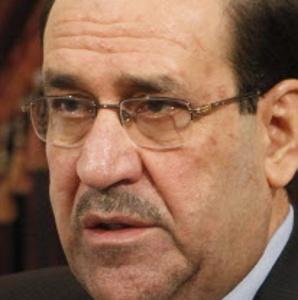Aswat al-Iraq
BAGHDAD /Aswat al-Iraq – The official spokesman of al-Iraqiya List, led by former PrimeMinister Iyad Allawi, has said on Monday that “there is a politicalagenda, moved by Iran to give an impression for the expulsion of theanti-Tehran Mujahedin El-Khalq organization’s residents from east Iraq’s AshrafCamp.”
“Thepolitical agenda is known to be moved by the Iranian Regime and does notreflect the real wish of the Iraqi people, which we surely reject and thinkthat our previous position had been a position of principle, because the caseof residents of Ashraf Camp was based on International agreements and theGeneva Treaty,” Haider al-Mulla said in a statement, copy of which was receivedby Aswat al-Iraq news agency.
“TheIraqi government has no other alternative but to lean to the statement of theUN Secretary-General’s Representative, and we believe that the HigherCommission for the Immigrants Affair possesses realistic mechanisms to settlethis dossier, whilst talk about moving the residents of Ashraf Camp from Diyalato another Iraqi province inside Iraq is part of an Iranian agenda, aimed atliquidating Mujahedin El-Khalq’s elements,” he said.
The Iraqigovernment had issued a decision to put an end for the presence of the saidOrganization in Iraq before the end of 2011, charging it with being,” aterrorist organization that had shared in killing Iraqis.
The anti-TehranMujahedin E-Khalq organization is based in Ashraf Camp in northeast Iraq’sDiala Province, for which it had moved after shifting its command into Iraq in1985, where it had enjoyed support by the previous Iraqi regime, in its attacksagainst Iran.
SKH (TS)/SR
